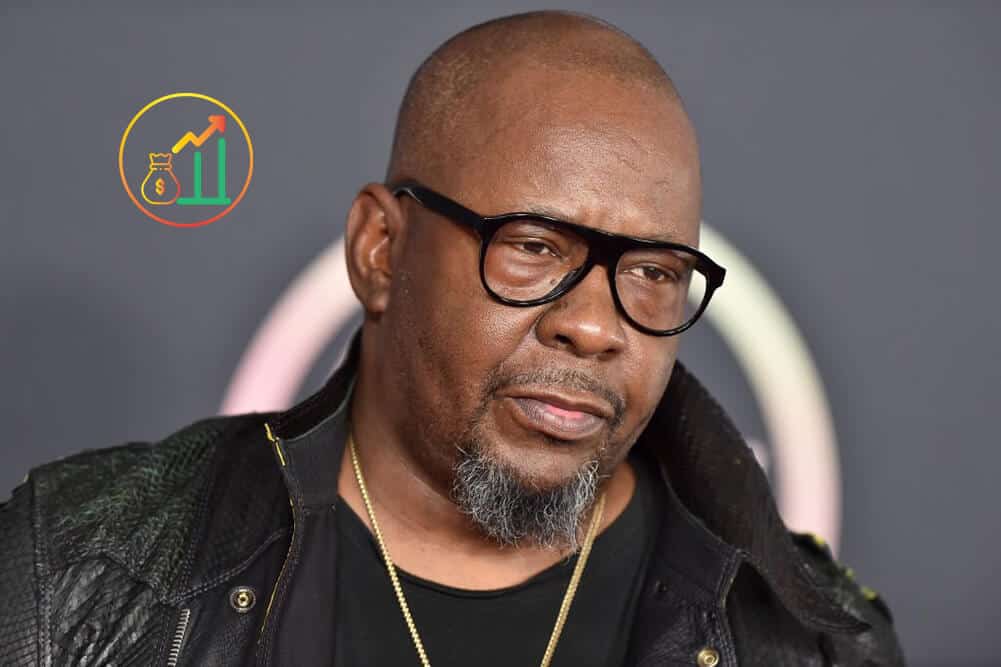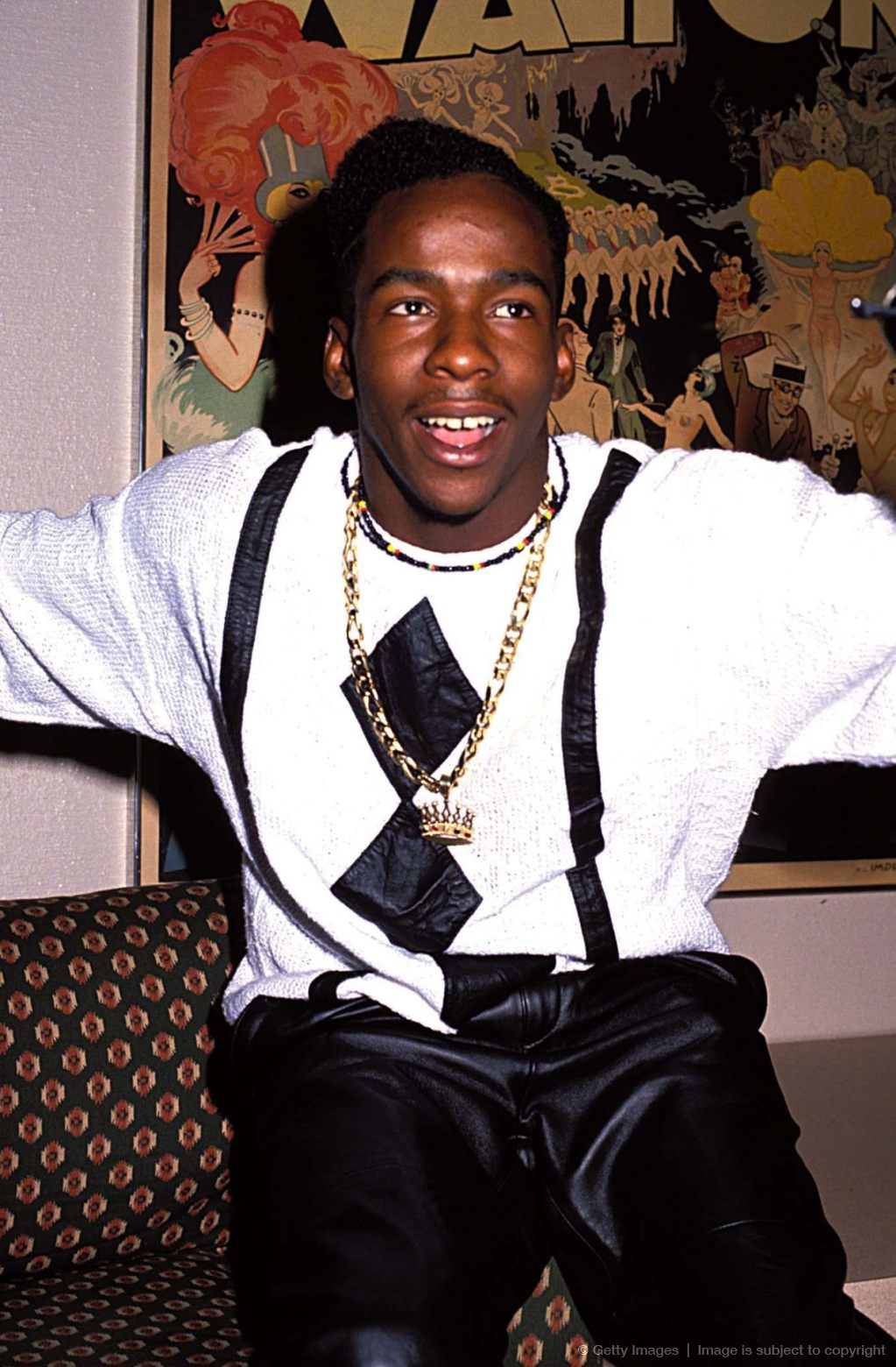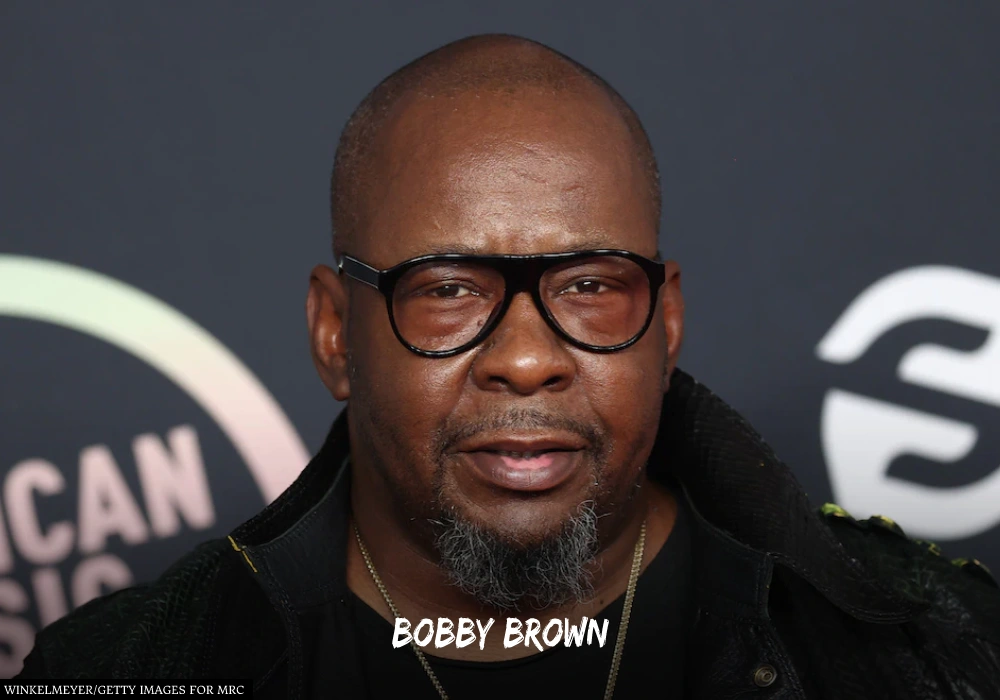Unveiling: Bobby Brown's Net Worth In 1989 - A Financial Lookback
Ever wondered how much a music icon was worth at the peak of their game? In 1989, Bobby Brown wasn't just topping charts; he was building an empire. Determining Bobby Brown's net worth in 1989 is a crucial exercise in understanding the economics of superstardom at the time. It wasn't just about the music; it was about branding, touring, and the cultural zeitgeist he embodied.
From his early days with New Edition to his explosive solo career, Bobby Brown's trajectory is a captivating study of fame's multifaceted nature. This analysis will dissect the elements that contributed to his financial status in 1989, from record sales and endorsements to the complexities of his personal life, all set against the backdrop of a rapidly evolving music industry.
| Attribute | Details |
|---|---|
| Name | Bobby Brown |
| Date of Birth | February 5, 1969 |
| Place of Birth | Boston, Massachusetts, USA |
| Occupation | Singer, Songwriter, Dancer, Actor |
| Genres | R&B, Pop, New Jack Swing, Hip Hop |
| Years Active | 1978present |
| Associated Acts | New Edition, Heads of State |
| Labels | MCA Records, Geffen Records |
| Website | Official Website |
Born Robert Barisford Brown on February 5, 1969, in Boston, Massachusetts, Bobby Brown emerged onto the music scene as a fresh-faced member of New Edition. His raw talent and infectious energy quickly set him apart. New Edition, formed in 1978, captured the hearts of young audiences with hits like "Candy Girl" and "Cool It Now." While the group experienced considerable success, Bobby's individual ambition and desire for greater creative control led him to pursue a solo career, a move that would redefine his career and financial future.
- Demi Moore Ageless Beauty See Her Best Looks Stunning Photos
- Tiger Woods Mother Kultida Passes Away A Life Remembered
New Edition's genesis occurred during Bobby's formative years. The group provided the perfect training ground for honing his performance skills. Their blend of pop sensibilities and R&B rhythms resonated deeply with a youthful demographic, setting the stage for Bobby's later solo achievements. New Edition's 1984 self-titled debut album achieved platinum status, signaling the arrival of a significant force in the music industry. Songs like "Mr. Telephone Man," and "Lost in Love" became anthems for a generation. These initial successes fueled Bobby's hunger for even greater artistic expression, inevitably leading him to explore avenues beyond the confines of the group dynamic.
Key tracks that cemented New Edition's place in music history include "Candy Girl" (1983), a bubblegum pop hit that launched their careers, "Cool It Now" (1984), which showcased their evolving sound and crossover appeal, and "If It Isn't Love" (1988), a later hit that demonstrated their continued relevance even as Bobby was preparing to venture out on his own. As New Edition's star continued to rise, so did Bobby's personal aspirations. He envisioned a career where he could fully express his artistic vision, leading him to the difficult decision to embark on a solo path in the late 1980s. This decision was driven by a complex mix of creative differences within the group and a deep-seated desire for the autonomy that a solo career promised.
Bobby Brown's transition to a solo artist was nothing short of meteoric, igniting with the release of his second solo album, "Don't Be Cruel" in 1988. The album became a cultural phenomenon, spawning multiple chart-topping hits that showcased Bobby's unique vocal style, dynamic stage presence, and undeniable charisma. The album's success not only solidified his position as a leading R&B artist but also catapulted him into the realm of mainstream pop superstardom. "Don't Be Cruel" was a bold statement, a declaration of artistic independence that resonated with audiences hungry for something new and exciting. The album's influence extended beyond the music charts, impacting fashion, dance, and youth culture in general.
- Aww Drew Barrymore Corey Feldmans Touching Reunion Today
- Boxings Darkest Side Deaths Due To Ring Injuries A List
Among the standout singles from "Don't Be Cruel" were "My Prerogative," an assertive anthem of self-determination that became his signature song; "Every Little Step," an infectious dance-pop track that topped the charts and earned him a Grammy Award; and "Roni," a smooth, seductive ballad that showcased his vocal range and emotional depth. "My Prerogative," in particular, became an iconic statement of artistic freedom and defiance against critics who questioned his departure from New Edition. These hits not only dominated the airwaves but also fueled massive album sales, concert attendance, and endorsement deals, all of which contributed to Bobby's burgeoning financial empire. By 1989, Bobby Brown had firmly established himself as a force to be reckoned with in the music industry, his name synonymous with success and innovation.
The immense success of "Don't Be Cruel" had a direct and substantial impact on Bobby Brown's financial status. In 1989, his estimated net worth reached approximately $10 million, a figure largely attributed to the album's phenomenal sales, which surpassed 5 million copies in the United States alone. This milestone solidified his place among the highest-earning musicians of the era. His financial success was not solely dependent on album sales; it also encompassed revenue generated from lucrative concert tours, high-profile endorsements, and strategic merchandising ventures. By this point in his career, Bobby Brown had not only achieved artistic recognition but also cultivated a keen understanding of the business aspects of the music industry, enabling him to maximize his earnings and secure his financial future.
The sales figures for "Don't Be Cruel" were astronomical, exceeding 5 million copies sold in the United States and achieving multi-platinum status worldwide. This level of commercial success translated directly into substantial royalty earnings for Bobby Brown, solidifying his financial foundation. Moreover, the album spawned multiple chart-topping singles, each contributing to a steady stream of income from radio airplay, music video broadcasts, and licensing agreements. The combined effect of these revenue streams propelled Bobby Brown into the upper echelons of the music industry's financial elite. The album's success also opened doors to numerous opportunities for endorsement deals and collaborations, further expanding his earning potential.
Beyond album sales, Bobby Brown's income in 1989 was significantly augmented by revenue from concert tours and merchandise sales. His electrifying stage presence and dedicated fan base ensured that his concerts were consistently sold out, generating substantial profits from ticket sales and associated merchandise. The demand for Bobby Brown-branded merchandise, including clothing, posters, and memorabilia, was incredibly high, further boosting his overall earnings. These diverse income streams allowed him to accumulate wealth rapidly and solidify his position as a major player in the entertainment industry. His concerts were not just musical performances; they were full-blown entertainment experiences that drew in fans from all walks of life.
In 1989, Bobby Brown's financial empire was built upon a diverse range of income streams, each contributing to his lavish lifestyle and status as a music industry mogul. Music sales, particularly album and single sales, formed the cornerstone of his earnings, generating substantial royalties from both domestic and international markets. However, his concert tours were equally lucrative, drawing massive crowds and generating significant revenue from ticket sales and merchandise. In addition to these primary sources of income, Bobby Brown also benefited from endorsement deals with various brands, capitalizing on his image and popularity to promote products and services. Sales of branded merchandise, including clothing, accessories, and memorabilia, further augmented his earnings, solidifying his position as a savvy businessman in addition to his artistic talents.
Live performances were a major source of income for Bobby Brown in 1989. His high-energy concerts, characterized by elaborate stage productions and captivating dance routines, attracted large audiences willing to pay premium prices for tickets. These concerts not only generated direct revenue from ticket sales but also boosted sales of merchandise, further increasing his overall earnings. Bobby Brown's concerts were more than just musical events; they were cultural experiences that resonated with fans from diverse backgrounds. His ability to connect with his audience on a personal level contributed to his enduring popularity and financial success.
Collaborations with various brands served to both increase Bobby Brown's visibility and generate substantial income. These endorsement deals allowed him to leverage his popularity and image to promote products and services, ranging from clothing and accessories to beverages and automobiles. By aligning himself with reputable brands, Bobby Brown not only expanded his financial portfolio but also solidified his status as a cultural icon. These endorsements were carefully selected to complement his image and appeal to his target audience, ensuring that they were both financially rewarding and strategically beneficial.
The sales of Bobby Brown-branded merchandise in 1989 were a significant source of additional income. Fans eager to express their allegiance to the artist purchased clothing, posters, and other memorabilia bearing his name and likeness. These sales not only generated direct revenue but also served to further promote his brand and increase his visibility. The demand for Bobby Brown merchandise was driven by his widespread popularity and the cultural impact of his music, fashion, and dance styles. By capitalizing on this demand, Bobby Brown was able to maximize his earnings and solidify his position as a prominent figure in the entertainment industry.
With an estimated net worth of $10 million, Bobby Brown's lifestyle in 1989 epitomized luxury and excess. He became known for his flamboyant fashion sense, often seen sporting designer clothing, expensive jewelry, and elaborate hairstyles. His penchant for luxury extended to his choice of transportation, as he frequently drove high-end vehicles, including sports cars and limousines. The media closely followed his every move, amplifying his public persona and further solidifying his status as a cultural icon. This lavish lifestyle, while seemingly glamorous, also came with its share of challenges, including increased public scrutiny and the pressures of maintaining a high-profile image.
Bobby Brown's taste for luxury was evident in his acquisition of high-end vehicles, including sports cars and limousines, which he used to navigate the bustling streets of the cities he visited. These vehicles served not only as a means of transportation but also as symbols of his success and status. His collection of luxury vehicles became a topic of media attention, further solidifying his image as a wealthy and influential figure. He often customized these vehicles to reflect his personal style, adding to their exclusivity and appeal.
His real estate holdings in 1989 included luxury homes in affluent neighborhoods, providing him with lavish living spaces and privacy away from the prying eyes of the media. These homes were often equipped with state-of-the-art amenities and extravagant furnishings, reflecting his taste for luxury and comfort. His real estate investments not only provided him with a place to reside but also served as a valuable asset that contributed to his overall net worth. He often hosted lavish parties and gatherings at these homes, further enhancing his reputation as a prominent figure in the entertainment industry.
His wardrobe was a testament to his flamboyant style, featuring designer clothing and accessories from top fashion houses. He often sported custom-made outfits that reflected his unique personality and taste. His fashion choices became a source of inspiration for fans and aspiring artists alike. He collaborated with designers to create signature looks that further solidified his status as a trendsetter. His attention to detail and willingness to take risks with his fashion choices set him apart from his contemporaries.
Despite his widespread success, Bobby Brown faced numerous challenges and setbacks that tested his resilience and threatened to derail his career. His personal life was often marred by struggles with substance abuse and tumultuous relationships, which frequently overshadowed his musical achievements. These challenges not only impacted his personal well-being but also affected his professional reputation and career trajectory. His ability to navigate these difficult times and reinvent himself is a testament to his strength of character and determination.
The intense media scrutiny surrounding Bobby Brown's relationships, particularly his marriage to Whitney Houston, placed immense pressure on him and contributed to his personal struggles. The couple's tumultuous relationship became a constant source of public fascination and speculation, often overshadowing their respective achievements. The media attention created a stressful environment that exacerbated his existing personal challenges. Despite the difficulties, he remained committed to his music and career, striving to overcome the obstacles in his path.
His struggles with addiction had a significant impact on his performances and public image, leading to missed opportunities and tarnished reputation. His battles with substance abuse were widely publicized, drawing criticism and concern from fans and industry professionals. Despite these setbacks, he sought treatment and worked to overcome his addiction, demonstrating his commitment to his health and well-being. His journey to recovery served as an inspiration to others facing similar challenges. He spoke openly about his experiences, using his platform to raise awareness and encourage others to seek help.
Bobby Brown's influence on the music industry extends far beyond his personal success. He pioneered the New Jack Swing genre, a fusion of R&B and hip hop that revolutionized the sound of popular music in the late 1980s and early 1990s. His innovative style and approach to performance paved the way for future generations of R&B artists. His impact on pop culture is undeniable, as his music, fashion, and dance moves continue to resonate with fans and inspire artists today. His legacy as a trendsetter and innovator is firmly established in the annals of music history.
Bobby Brown's unique sound, which blended elements of R&B, hip hop, and pop, helped to define the New Jack Swing genre. This fusion of musical styles appealed to a wide audience, contributing to his widespread popularity and commercial success. His influence on the genre can be heard in the music of countless artists who followed in his footsteps. New Jack Swing became a dominant force in the music industry, shaping the sound of popular music for years to come.
His energetic stage presence, distinctive vocal style, and innovative dance moves have served as inspiration for countless artists, including Usher and Chris Brown. These artists have cited Bobby Brown as a major influence on their own music and careers, acknowledging his impact on their artistic development. His legacy as a trendsetter and innovator continues to resonate with contemporary artists, solidifying his place as a pivotal figure in the history of R&B and pop music.



Detail Author:
- Name : Xzavier McDermott
- Username : sdaniel
- Email : watson.mcdermott@gmail.com
- Birthdate : 1984-07-03
- Address : 46712 Trycia Run Suite 168 Rogahnton, AK 94480-5585
- Phone : +1-682-621-4274
- Company : Turner, Boyer and Schoen
- Job : Health Practitioner
- Bio : Explicabo voluptatem nostrum aut quis doloribus. Mollitia nisi sunt dolorem minima dolorem temporibus animi. Veniam voluptas quam sunt dolor.
Socials
linkedin:
- url : https://linkedin.com/in/crooksd
- username : crooksd
- bio : Sit omnis distinctio officia possimus.
- followers : 1098
- following : 2859
tiktok:
- url : https://tiktok.com/@dcrooks
- username : dcrooks
- bio : Recusandae excepturi quaerat quia. Iste maiores natus ut velit.
- followers : 4061
- following : 480
twitter:
- url : https://twitter.com/destini1609
- username : destini1609
- bio : Quibusdam omnis eum molestiae sit sed rerum deserunt. At veritatis excepturi veritatis fuga sit molestiae.
- followers : 1207
- following : 470
instagram:
- url : https://instagram.com/destini_official
- username : destini_official
- bio : Et quo quia natus numquam qui quisquam. Vitae officiis fugit nihil temporibus et.
- followers : 821
- following : 733